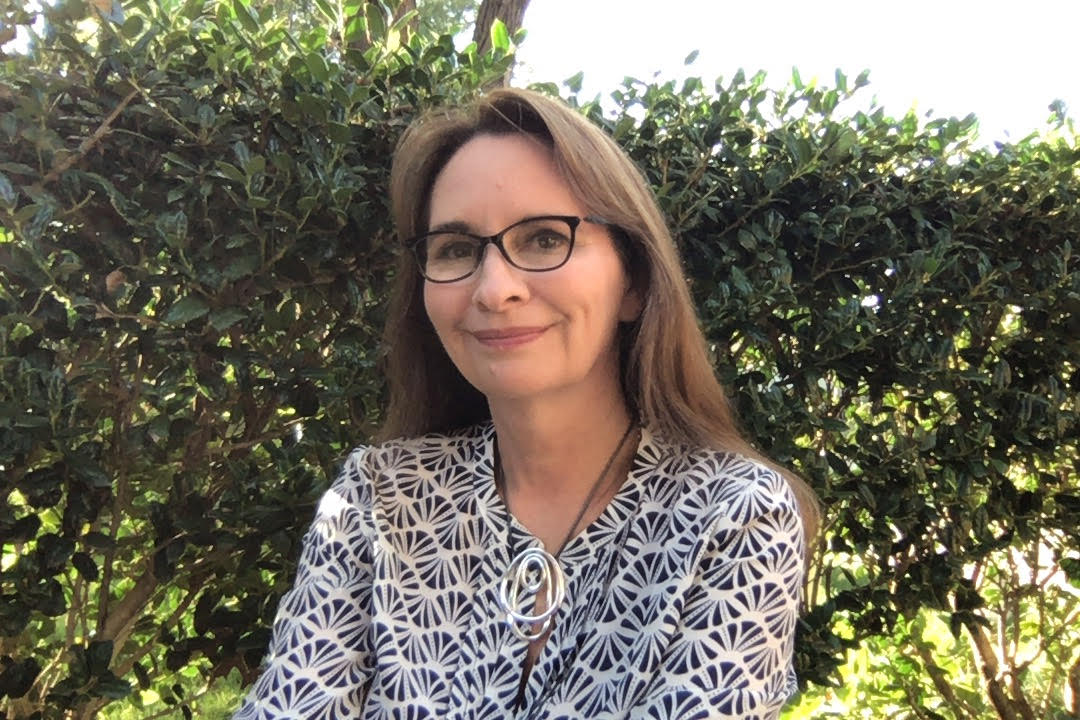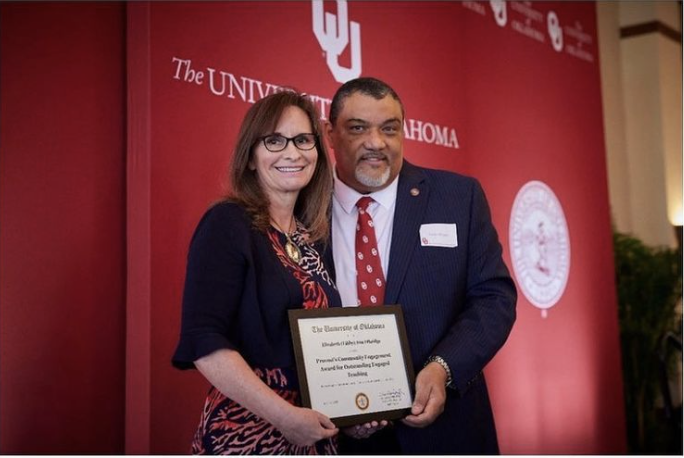Faculty Feature: Dr. Libby Ethridge
The Tulsa Higher Education Consortium’s Faculty Feature for the month of April is Dr. Elizabeth (Libby) Ethridge, Associate Professor in Early Childhood Education at OU-Tulsa. Dr. Ethridge was awarded the Provost’s Community Engagement Award for Outstanding Engaged Teaching. Recipients of the distinguished award are recognized for implementing innovative and effective teaching that demonstrates community collaboration, institutional impact and deeply engaged, high-quality learning.
Dr. Ethridge was nominated by her colleagues and students, who shared that her “passion for educational advocacy manifests in her teaching, research, and service; Dr. Ethridge weaves together her work in these areas in ways that engage students as researchers, external partners as teachers, and classroom teachers as learners, significantly impacting each community with whom she works.” Ethridge provides her students with service learning opportunities within their placement schools and in the broader community. One guiding principle to her ethos of community engagement is relationship building. She shares that relationship building with “students, teachers, administrators, community leaders, state legislators, and essentially anyone in the community,” allows teachers-in-training to develop “empathy and understanding”.

“Learning about the community needs through guest speakers, working with community partners, and going out into the community to interact with others is key to creating community engagement.”
The scope of Ethridge’s community work extends past the immediate community to local and state government. Current and former students of Dr. Ethridge (including the author of this article) recognize her as an important influence in shaping their understanding of advocacy. One former student shared, “I can honestly say that without Libby, I would not be the advocate I am today. Libby is a leader in advocacy research.” Ethridge has presented on the topic of teacher advocacy at local, state, and national levels and is the lead editor for the book, Advocacy in Education: Research-Based Strategies for Teachers, Administrators, and Teacher Educators.
When asked about the source of inspiration for her work, Ethridge shared that mentors have played a powerful role in her life. With both parents as educators – her father was an Assistant Superintendent in Wagoner, OK – and learning from her mentor, Dr. Shirley Raines (President Emerita, University of Memphis), Ethridge has had strong models to follow.

Another source of inspiration is her “sense of personal and professional responsibility to engage with the community as an education professional and serve as an advocate for children and the field of education.” However, finding the courage to be an advocate has not always come naturally for Ethridge. Reminiscing about her advocacy journey, she shared, “It was not easy for me to speak up. My voice would be quivering, my knees literally knocking, my hands shaking, but I spoke up for children and felt that they needed an advocate. That is what drives me. Children still need advocates and they need them from all sides. Advocates for their families, their teachers, and at the state level where decisions are made for schools.” She encourages educators to “have the courage to speak up and act instead of listening to that all too familiar inner voice that says, ‘you can’t make a difference.’ You must try and then you will be amazed at what can be achieved.”
Ethridge’s belief in the power of community and advocacy is transformational. A large part of the job of an early childhood educator is creating a classroom community where students care for one another, show empathy, and respect one another. The way that Dr. Ethridge teaches her students to create such a classroom community is first by showing them to engage with their own communities – where they live, work, and play – and to build networks by getting to know people. “You never know what collaboration will come from a new connection. Build a foundation for future collaborations.”
Sharing her secret of community engaged teaching, Ethridge said: “Community engaged teaching cannot be done in isolation. As educators, we must get out of our classrooms and at the same time, we must invite others into our classrooms.”
Post by Laura Latta, Ph.D.

